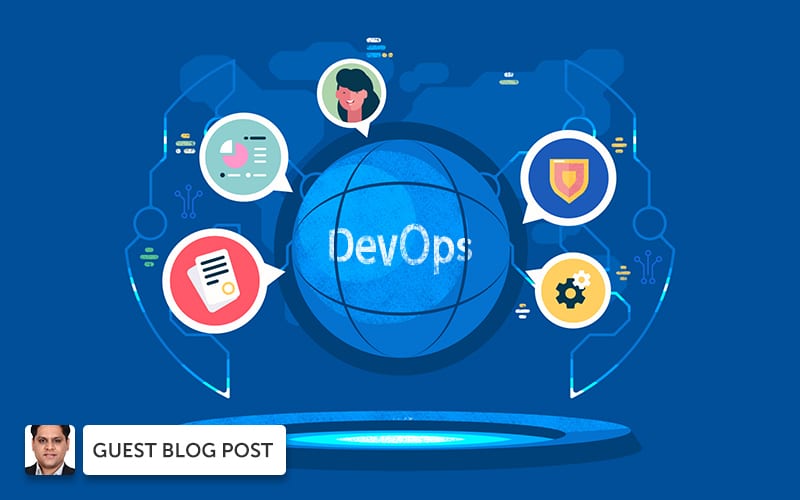“DevOps“ is a term that refers to the evolving professional movement that supports a collaborative relationship between IT Operations and development, leading to the fast flow of planned work that has high deploy rates, and at the same time increasing the stability, resilience, security, and reliability of the production environment.
DevOps came into view in 2009 when a squad of Belgian developers hosted DevOps Days, which supported collaboration between developers and operational staff. As the cloud is in buzz these days, most developers have readily accepted it that ultimately impacts Ops. DevOps and cloud are closely connected to each other that this post maps out in detail.
DevOps is great as a concept, but it is difficult to execute in reality. As DevOps has grown widespread and differentiated, it has become critical to know how to reach the next level of advancement and truly develops a DevOps driven organization. On this note, have a look at IDC’s recently published DevOps 2.0 MaturityScape.
There is no doubt in saying that DevOps builds a closer working relationship between dev and ops teams, but more significantly it necessitates collaboration with groups spanning QA & testing, security and architecture.DevOps is likely to become everything – which according to my view is right – DevOps is way better when it integrates cross-functional teams with the aim to deliver high-touch customer experiences quickly.
Implementing and accelerating DevOps are an important topics of discussion; and within this automation, the role of QA & testing, and how to align with security driven DevOps are key considerations. There is a rise in experimentation and utilization of containers and microservices; and more investments in hybrid cloud management, consistent integration/continuous delivery, automated code testing, application performance management have become important to promote the development of a DevOps driven organization. The idea, of course, is to know what investments will support fastening of your organization’s DevOps journey.
As per a recent stats, by the end of 2018, 90% of IT Projects will depend on the principles of experimentation, speed, and quality.
Though operational models and technology investment strategies are still progressing, we begin to observe a widening gap between those businesses in experimentation mode contrary to those that know the benefits and quickly deploying DevOps to speed up a business change.
IDC’s DevOps Conference will make you understand how to accelerate and navigate the DevOps journey and is the right opportunity to know more about this.
How DevOps dictates a new approach to the cloud.
1. Cloud is not always a great solution for systems
DevOps and Cloud offer various potential benefits for companies, but many of them have larger investments in infrastructure, for instance, a mainframe. In the 1990s, the “Death of the Mainframe” has been touted, but the general fact is there is no business case to change many of the systems they host with Cloud-based solutions. The value of these systems can be increased with the help of DevOps techniques and future-proofed to make sure they do not turn into a bottleneck in difficult end-to-end customer journeys.
2. Cloud Native is not many organizations’ first-term goal
Most of our clients are planning to migrate to Cloud, and plan to do so over a two year period, but few have made a move now. Cloud migration is a continuous process, and the decision to do so should depend on business requirements. This involves whether the enterprise shifts entirely to Cloud or selects a hybrid, whichever option they pick, they have to deliver high business value from their current systems up to the point they are replaced or migrated.
3. DevOps tools are interchangeable
DevOps allows businesses to centralize their working practices and culture to gain transformational speed along with the quality of delivery. The tools that support this are interchangeable throughout system types, providing long-lasting benefits no matter how business systems are operated. While simply migrating to Cloud can allow enterprises to scale, it does not increase delivery speed or quality by itself.
4. To maximize the benefits of Cloud in the future
To make the most out of Cloud, businesses need to accept new ways of working. Different services available from main Cloud providers are “DevOps” tools in their right, for instance, AWS CodePipeline. But as mentioned in the previous point “tools support working practices and culture”. With the right working practices and culture in place, you can make the optimum use of tools.
5. Can the Cloud run without DevOps?
As mentioned above, cloud computing offers various benefits. These benefits are particularly useful when strengthened by the DevOps approach, but does the cloud have much to provide if we take out DevOps?
Undoubtedly, “yes”—but not much. You can still use machines in a flexible and scalable manner without DevOps. You can also take advantage of the pay-per-use business model, in which you have the authority to turn off unused resources to stop unnecessary spending.
Though both the cloud and DevOps functions well separately, they are stronger when they are used jointly. You will need to use the cloud model for DevOps to achieve its full potential for flexibility and agility. Similarly, when using the cloud, knowingly or not, you will automate processes and store configuration in version control before you experience that you are really following DevOps practices.
Netflix’s Simian Army is a great example to know about the success that can result from the integration of cloud and DevOps. You might consider this is not right for your company as it follows “on-premises only deployment policy.” Nevertheless, there is a way to get benefited from the cloud approach.
Bottom Line
DevOps and the cloud help businesses to transform user interaction with software delivery strategically. Enterprises no longer struggle adaptation but instead improve adaptability. Consider the cloud as an instrument, then take DevOps as the facilitator. If DevOps is a means, then the driver is the cloud. DevOps and the cloud together foster the development and IT leaps from ‘wait for the right time’ to ‘active frequency’. If you want to learn more about their relation then you can take DevOps training from experts to master its concepts.

Author bio:
Danish Wadhwa is a strategic thinker and an IT Pro. With more than six years of experience in the digital marketing industry, he is more than a results-driven individual. He is well-versed in providing high-end technical support, optimizing sales and automating tools to stimulate productivity for businesses.



